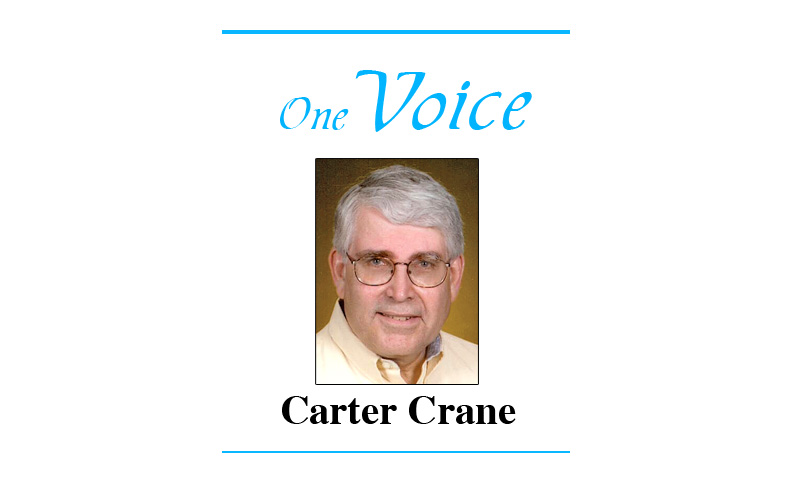
Within more than these 60 days, society in the United States celebrates the holiday season, Halloween through New Year’s Day. There is a wide range of activity, commercial, religious, celebratory, fun, giving, caring, and planning.
Much of it was muffled last year because of the reality of the COVID-19. It certainly should have been taken seriously with illness and death. We can save debate for another time how deadly, how serious, and how spontaneous, or planned has been the virus.
Without question, activities have been greatly altered and in many cases completely shut down.
Energized plans, with modifications are and likely to be in our future for these 60-plus days. Halloween is at hand. It is recognizable in The Voice this week. One item to direct attention, in deference to Halloween, is the focus on William “Bill” Pack, Halloween researcher from Batavia who was at the recent presentation at the Geneva Public Library, Tricks and Treats: A Cultural History of Halloween, thevoice.us/tricks-and-treats-a-cultural-history-of-halloween.
Contributor Al Benson’s photo and information reflected Bill Pack’s presentation: “Sporting a skull-decorated necktie, the Batavia resident and Halloween researcher said the holiday originated many centuries ago in pagan European harvest celebrations and festivals of the dead. They included bonfires, bell-ringing, and fortune-tellers. According to Pack, the celebration was brought to the U.S. by Irish and Scots immigrants in the 1800s.”
Fast forward to today, the Mexican immigrants have provided a similar refrain with the Day of the Dead. Certainly it is related to the Sugar Skull City celebration in Aurora, provided by the Aurora Downtown October 15-November 7.
Traditions, celebrations, modest changes, and adherence to traditions, are a part of our society. We can understand with the remembrances of Veterans Day November 11, Thanksgiving Day, November 25 and this year, there are special days every day in December, and some times two in a date. Ten random specials days and holidays in December: Dec. 5, Day of the Ninja; Dec. 6, St. Nicholas Day; Dec. 6, Last Day of Hanukkah; Dec. 7, Pearl Harbor Day; Dec. 17, National Ugly Sweater Day; Dec. 20, International Human Solidarity Day; Dec. 24, Christmas Eve; Dec. 25, Christmas Day; Dec. 26, Kwanzaa; Dec. 31, New Year’s Eve.
Traditions are worthy to acknowledge, adhere to, and, when necessary find transformation. There is a balance in understanding the past and to looking forward with an open mind to the future.
Clear and Concise, Week 43, Year 2:
Assessments, labels, and political identities should be few and far between because of changing tides. What is correct, perhaps one week, or, one year, may change. The word liberal comes to mind both inside and outside of politics. Liberal outside of politics many decades ago meant open-minded, wide-ranging, and less restrictive. Assessments now inside of politics view liberal as seeking change and more progressive for those who have less material goods and fewer opportunities. Several decades ago conservatives spit out the word liberal as though it were a bad taste in their mouths. Many individuals seen as liberal began to use the term progressive, to make progress and changes, because of the pejorative term liberal had become. Plus, with changes, those who may have been liberal previously, may seem more conservative. The human mind tends to want to be orderly and affix labels to movements, causes, individuals, and elements seemingly foreign to the mind. That’s why seeking to clearly define a movement, cause, or individuals, may change. We should seek a higher purpose in engaging with individuals. Likely that is why the word politics becomes anathema to those persons who are not involved and skittish about engaging in politics. Politics is a natural friction among individuals in setting a human course and in guiding paths for civilized society. It should not be an unsettling course, nor, keep discussion to a minimum. Perhaps, nonetheless, vigorous discussions around the family Thanksgiving dinner table should not seek to prove points, or, convince others that the speaker is correct. Each to our own views and those of others should be respected and not belittled.

